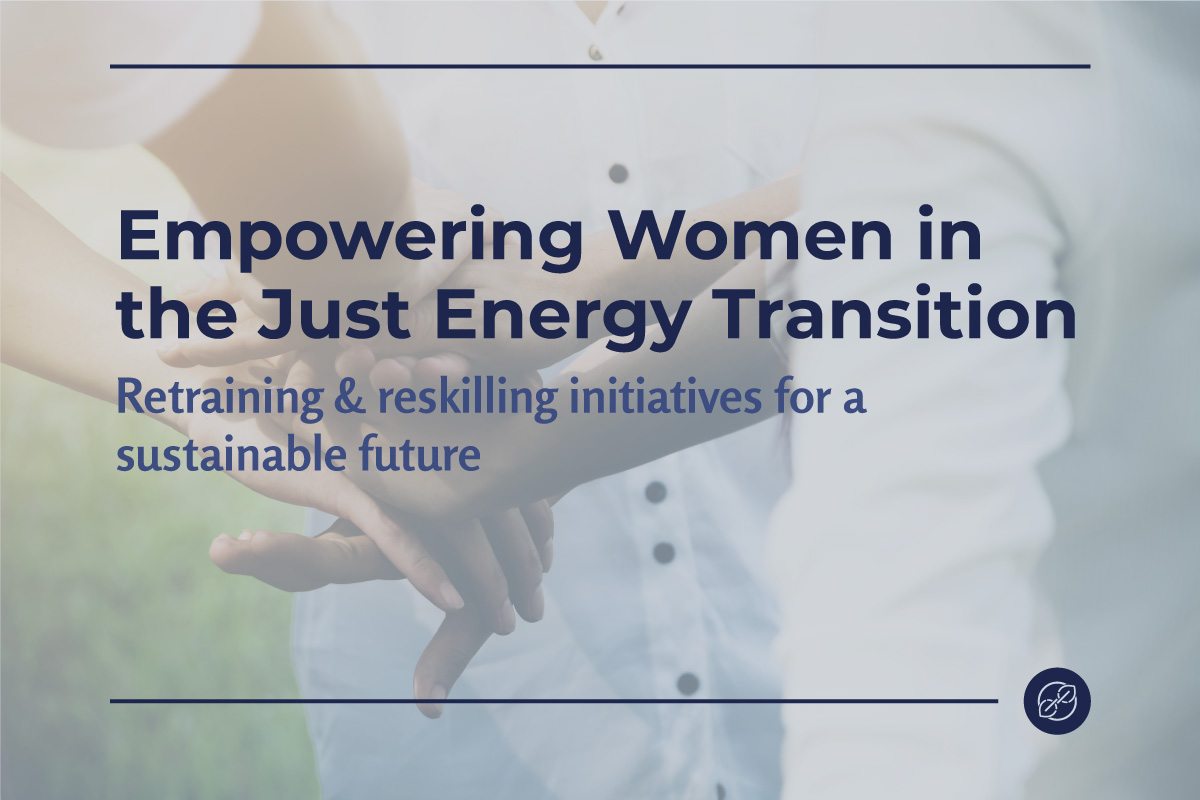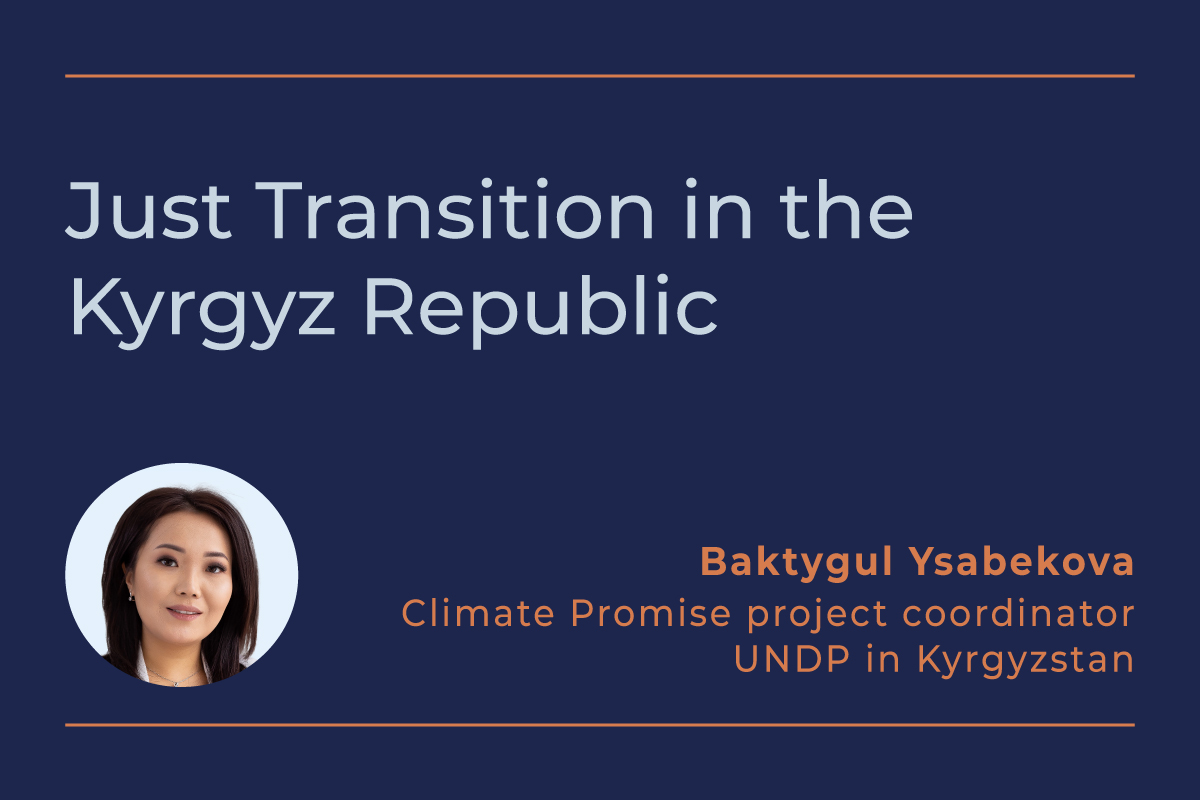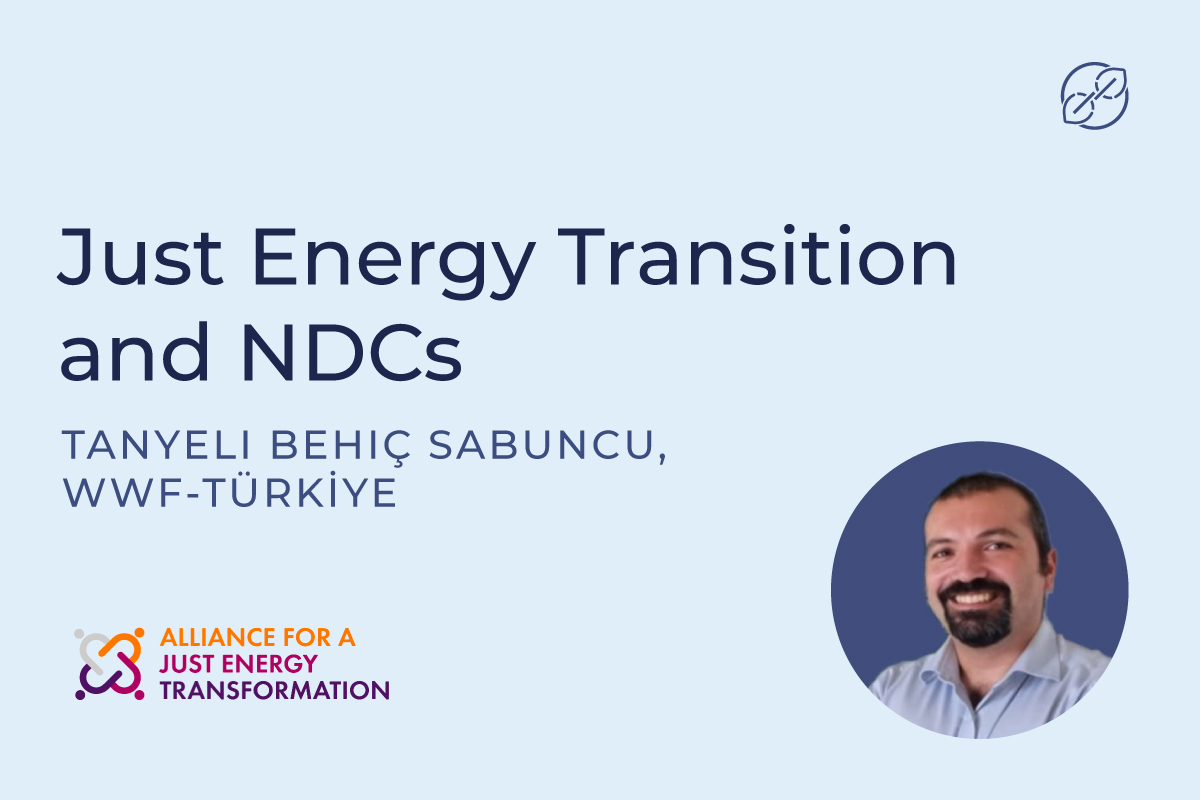Listen to article
Indroduction
The global energy landscape is undergoing a momentous transformation driven by imperatives of sustainability, equity, and resilience. The urgent need to address climate change and reduce greenhouse gas emissions has propelled a rapid shift towards renewable energy sources[1]. This transition seeks not only to decarbonize energy systems but also to ensure that the benefits and burdens of the transition are equitably distributed across society, leaving no one behind[2]. Central to the success of this transition is the full and equal participation of women, who have historically been underrepresented in the energy sector[3]. Retraining and reskilling women in the just energy transition is therefore, essential.
Scope of retraining and reskilling in this article
In this context, retraining and reskilling refers to the process of equipping women with the necessary skills and knowledge to effectively participate in the evolving energy sector, overcoming existing barriers and promoting gender equality and empowerment. Retraining and reskilling women is a matter of fundamental human rights and gender equality, providing women with increased opportunities for education, employment, and advancement. Investing in retraining and reskilling women is a sound economic decision with far-reaching benefits. Research has consistently shown that gender diversity in the workforce leads to greater innovation, productivity, and profitability. By ensuring the potential of women in the energy sector, new sources of expertise, creativity, and talent, can be unlocked, driving forth innovation and competitiveness in the rapidly evolving clean energy economy[4].
Gender equity and sustainable development goals
Empowering women with the skills, knowledge and opportunities to participate in the energy transition will advance gender equity and sustainable development goals simultaneously. By ensuring that women have equal opportunities to contribute to and benefit from the clean energy transition, we can accelerate progress towards goals such as affordable and clean energy (SDG 7), gender equality (SDG 5), and economic growth (SDG 8). This inclusive approach not only enhances the resilience and sustainability of energy systems but also promotes social equity, economic empowerment, and community well-being on a global scale[5].
What you will learn
This article will give you an overview of the challenges faced by women in the energy sector and an understanding of the importance of gender diversity. You will learn about retraining and reskilling initiatives and discover cases offering insights into successful retraining initiatives. Finally, you will go away with a set of recommendations to accelerate the empowerment of women in the sector.
Challenges faced by women in the energy sector
Limited access to technical education
Historically entrenched, the energy sector has maintained a pervasive male-dominated culture, manifesting in substantial gender disparities. Women encounter formidable systemic barriers obstructing their entry into and progression within the industry. One of the foremost challenges is the limited access to education, particularly in STEAM (Science, Technology, Engineering, Arts, and Mathematics) fields, which serves as a foundational requirement for many roles within the energy sector[6]. Additionally, biases entrenched in hiring and promotion practices systematically disadvantage women, leading to underrepresentation in technical, managerial, and especially leadership positions [7]. Despite strides towards gender equality in education, discriminatory practices persist, hindering women’s participation and stifling their potential contributions to the industry’s innovation and growth.[8]
Lack of visible role models and mentors
The conspicuous absence of visible female role models and mentors exacerbates the underrepresentation of women in the energy sector. The scarcity of female leaders and decision-makers not only impedes aspirational pathways for women but also contributes to a lack of diversity in perspectives and approaches within the industry. Without tangible examples of successful women in leadership roles, aspiring professionals, particularly young women, face challenges envisioning themselves in similar positions. This absence of representation further perpetuates the cycle of underrepresentation, impeding efforts to attract, retain, and empower women within the energy workforce [9].
Workplace discrimination
The pervasive prevalence of workplace discrimination poses a formidable barrier to women’s advancement and retention in the energy sector. Issues such as sexual harassment, unequal pay, and a dearth of opportunities for career advancement continue to plague the industry, creating toxic work environments that deter women from pursuing or sustaining careers in energy-related fields. Despite legislative and organizational efforts to address these disparities, the persistence of discriminatory practices underscores deep-rooted cultural and structural challenges that must be confronted to foster a more inclusive and equitable energy workforce. Efforts to eradicate workplace discrimination are essential to cultivating environments where women feel valued, respected, and empowered to realize their full potential within the energy sector [10].
The importance of gender diversity in the energy sector
Higher performance
Incorporating gender diversity into the energy sector brings about tangible economic advantages. Research consistently demonstrates that gender-diverse teams outperform homogeneous groups in most industries[11]. For example, a study by McKinsey & Company found that companies with greater gender diversity on their executive teams were 21% more likely to experience above-average profitability[12]. In the context of the energy transition, diverse perspectives can lead to more innovative solutions, driving economic growth and competitiveness. For instance, companies like General Electric have seen increased profitability and market share by actively promoting gender diversity within their workforce and leadership[13] [14].
Better decision making
Gender diversity in the energy sector is essential for fostering inclusive decision-making processes that reflect the needs and interests of diverse stakeholders. Including women in decision-making bodies, such as corporate boards, regulatory agencies, and industry associations, ensures that a broader range of perspectives is considered in shaping policies and strategies. For example, the Norwegian oil and gas company Equinor has achieved greater sustainability and community engagement by appointing women to leadership positions and incorporating diverse viewpoints into their decision-making processes [15] [16].
Greater social impact
Empowering women in the energy transition yields significant social benefits, contributing to the overall well-being of communities. When women are provided with opportunities for meaningful employment and leadership roles in the energy sector, the benefits extend beyond individual empowerment to encompass broader social change. For example, initiatives like Barefoot College in India have empowered rural women to become solar engineers, bringing clean energy access to their communities and improving quality of life. Similarly, organizations like Solar Sister in Africa have created economic opportunities for women through entrepreneurship, leading to enhanced energy access and poverty alleviation[17]. By empowering women in the energy transition, the sector becomes a powerful catalyst for positive social impact, driving inclusive and sustainable development.
Retraining and Reskilling Initiatives must be flexible, accessible and reach the informal sector
Retraining and reskilling initiatives are designed to empower women in the energy sector- these range from tailored educational programs and entrepreneurship promotion to technology literacy and green jobs training. These initiatives encompass a diverse array of approaches aimed at overcoming barriers and unlocking opportunities for women at all stages of their careers. These successful initiatives and best practices inspire action and collaboration towards a more inclusive, equitable, and sustainable energy future, where women play a central role in driving positive change and transformation.
Tailored programs can overcome barriers
Developing educational programs tailored to the needs and constraints of women is essential for overcoming barriers to entry into the energy sector. These programs should be flexible, accessible, and designed to address the specific challenges faced by women, including those in the informal sector[18]. Programs may provide online learning modules and networking opportunities to facilitate skill development and career advancement for women in the renewable energy industry.
Promote entrepreneurship
Promoting entrepreneurship among women in the informal sector can unlock economic opportunities and drive local innovation in clean energy solutions. Training programs should equip women with the skills and resources needed to start and manage their own businesses, fostering economic empowerment and sustainability. ENERGIA, the International Network on Gender and Sustainable Energy, for example, has implemented a successful program aimed at empowering women entrepreneurs in the clean energy sector across several African countries, including Kenya, Tanzania, and Nigeria. The ENERGIA Women Entrepreneurs program focuses on training and supporting women to start and scale businesses that provide clean energy products and services to underserved communities [19].
Bridge the digital divide
In an increasingly digitalized energy landscape, enhancing women’s proficiency in technology and digital skills is paramount. Training programs should incorporate modules on digital literacy, data analytics, and emerging technologies to equip women with the tools needed to thrive in the digital economy. For example, the Digital Empowerment Foundation in India offers specialized training programs that focus on digital skills relevant to the energy sector, such as smart grid technologies and energy management systems [20]. These programs help women acquire in-demand skills and stay competitive in the rapidly evolving energy industry.
Address the green skills gap
Offering training in green job sectors such as renewable energy, energy efficiency, and sustainable construction can create pathways to employment for women in the energy sector. Hands-on training, certification programs, and apprenticeships can enhance women’s employability and facilitate their transition into high-growth areas of the clean energy economy[21]. For instance, organizations like GRID Alternatives in the United States provide job training programs that prepare women for careers in solar installation and maintenance[22]. These programs combine classroom instruction with hands-on experience, equipping women with the skills needed to succeed in the renewable energy industry.
Overcome financial barriers
Addressing financial barriers is crucial for women’s economic empowerment in the energy sector. Training programs should include components on financial literacy, access to finance, and entrepreneurship skills, enabling women to effectively manage their finances and access capital for business development. For example, the EmpowerHer Initiative in Nigeria offers workshops and mentorship programs that focus on financial literacy and business planning for women entrepreneurs in the energy sector[23]. By providing women with the knowledge and resources to navigate financial challenges, these programs empower them to achieve economic independence and sustainability.
Develop soft skills
In addition to technical skills, emphasis should be placed on developing soft skills such as communication, leadership, and negotiation. These skills are essential for women to navigate the complexities of the energy sector, advocate for their interests, and advance their careers. For instance, the Women in Energy Network (WIEN) in Nigeria offers professional development workshops and networking events that focus on soft skills development for women in the energy industry [24]. These programs provide women with opportunities to enhance their communication, leadership, and negotiation skills, enabling them to succeed in diverse roles within the sector.
Take training to communities
Establishing community-based training centers can enhance the accessibility and effectiveness of retraining initiatives for women. These centers serve as hubs for learning, networking, and collaboration, fostering a supportive environment where women can acquire new skills and access resources. For example, the Green Jobs Training Center in Bangladesh provides vocational training programs for women in renewable energy technologies [25]. These programs are delivered through community-based centers located in rural areas, ensuring that women have access to training opportunities close to home. By bringing training to the community level, these centers break down barriers to access and empower women to pursue careers in the energy sector.
Recognize prior learning
Recognizing and validating women’s prior experiences and skills is essential for their successful integration into the formal energy workforce. Recognition of prior learning mechanisms can help identify transferable skills, assess competency gaps, and tailor retraining programs to individual needs. For example, the Skills Development Fund in South Africa offers Recognition of Prior Learning (RPL) assessments for women seeking to enter the energy sector [26]. These assessments evaluate women’s existing skills and experiences, enabling them to receive credit for prior learning and fast-track their entry into training programs and employment opportunities.
Develop partnerships in the informal sector
Collaborating with organizations that represent and support women in the informal sector is critical for the success of retraining initiatives. These partnerships can help tailor programs to the specific needs of women in the informal economy, ensuring that training is relevant, accessible, and impactful. For example, the International Labour Organization (ILO) partners with women’s cooperatives and community-based organizations in Kenya to deliver training programs for women in the informal energy sector[27]. By leveraging existing networks and resources, these partnerships enhance the reach and effectiveness of retraining initiatives, empowering women to transition into formal employment and entrepreneurship opportunities in the energy sector.
Recommendations
1. Public policy should drive change from the top
2. The private sector should seize the opportunity of this vast, underrepresented talent pool
As outlined above, it is in the interest of private companies operating within the energy sector to actively promote gender diversity and inclusion within their organizations. This entails investing in comprehensive training and development programs designed to empower women and equip them with the necessary skills for success. Additionally, companies should implement robust diversity and inclusion policies, fostering a workplace culture that values equality and respect. By championing gender diversity, private sector entities can contribute to creating more equitable and inclusive work environments that drive innovation and sustainability.
3. Tap into the community to ensure success
4. Finance must be unlocked through innovative approaches to drive sustainable growth
Conclusion
As we strive for a sustainable and just energy future, prioritizing gender equality and women’s empowerment is essential. This demands ongoing investment in education, training, and support systems to enable women’s participation across the energy sector. Collaboration across sectors and engaging diverse stakeholders are crucial for systemic change.
The just energy transition presents a unique opportunity to harness women’s potential as change-makers and leaders. By embracing diversity, equity, and inclusion, we can create a future where women play equal roles in shaping the energy sector, driving positive impacts for society, the economy, and the environment.
[1] Hassan, Q., Viktor, P., Al-Musawi, T. J., Ali, B. M., Algburi, S., Alzoubi, H. M., … & Jaszczur, M. (2024). The renewable energy role in the global energy Transformations. Renewable Energy Focus, 48, 100545.
[2] Sage Kime et al 2023 Environ. Res. Lett. 18 123003.
[3] International Renewable Energy Agency (IRENA). (2021). Women in Renewable Energy: A Review of the Challenges and Opportunities.
[4] United Nations Development Programme (UNDP). (2020). Gender and Sustainable Energy: Case Studies on Energy Access and Gender Empowerment.
[5] United Nations. (2020). Sustainable Development Goals Report.
[6] International Labour Organization (ILO). (2019). Women and Men in the Energy Sector: A Fact Sheet.
[7] International Energy Agency (EIA) 2022. Understanding Gender Gaps in Wages, Employment and Career Trajectories in the Energy Sector.
[8] UNESCO. (2019). From Access to Empowerment- UNESCO Strategy for Gender Equality in and Through Education 2019-2025.
[9] International Energy Agency (EIA). 2023. World Energy Employment
[10] World Bank Group. (2019). Toward Gender Equality in East Asia and the Pacific: A Companion to the World Development Report
[11] International Energy Agency (IEA). (2020). Energy Technology Perspectives 2020: Special Report on Clean Energy Innovation
[12] McKinsey & Company. (2020). Diversity Wins: How Inclusion Matters.
[13] General Electric. 2023. Diversity Annual Report
[14] Bloomberg (2021). Gender, Diversity and Climate Innovation.
[15] Equinor. No Date. Including women in the workplace- do we practice what we preach?
[16] Nordic Energy Research. 2021. Gender Equity in the Nordic Energy Sector
[17] Barefoot College International. No Date. It Starts with the Sun.
[18] United Nations Women. (2019). Skills Development for Women’s Empowerment in the Energy Transition: Good Practices and Lessons Learned
[19] ENERGIA. No Date. Women Entrepreneurs.
[20] Digital Empowerment Foundation (DEF).
[21] International Labour Organization (ILO). (2018). Skills for Green Jobs: A Global View.
[22] GRID Alternatives: Women in Solar Program
[23] Empower Her for Sustinable Development Initiatives in Africa.
[24] Women in Energy Network (WIEN).
[25] International Labour Organization (ILO). 2012. Green Jobs Initiatives in TVET in Bangladesh.
[26] Future SA. Recognition of Prior Learning (RPL): A New Pathway to Career Advancement.
[27] International Labour Organization (ILO). No Date. COOP. Empower rural women- end poverty and hunger: the potential of African cooperatives.




